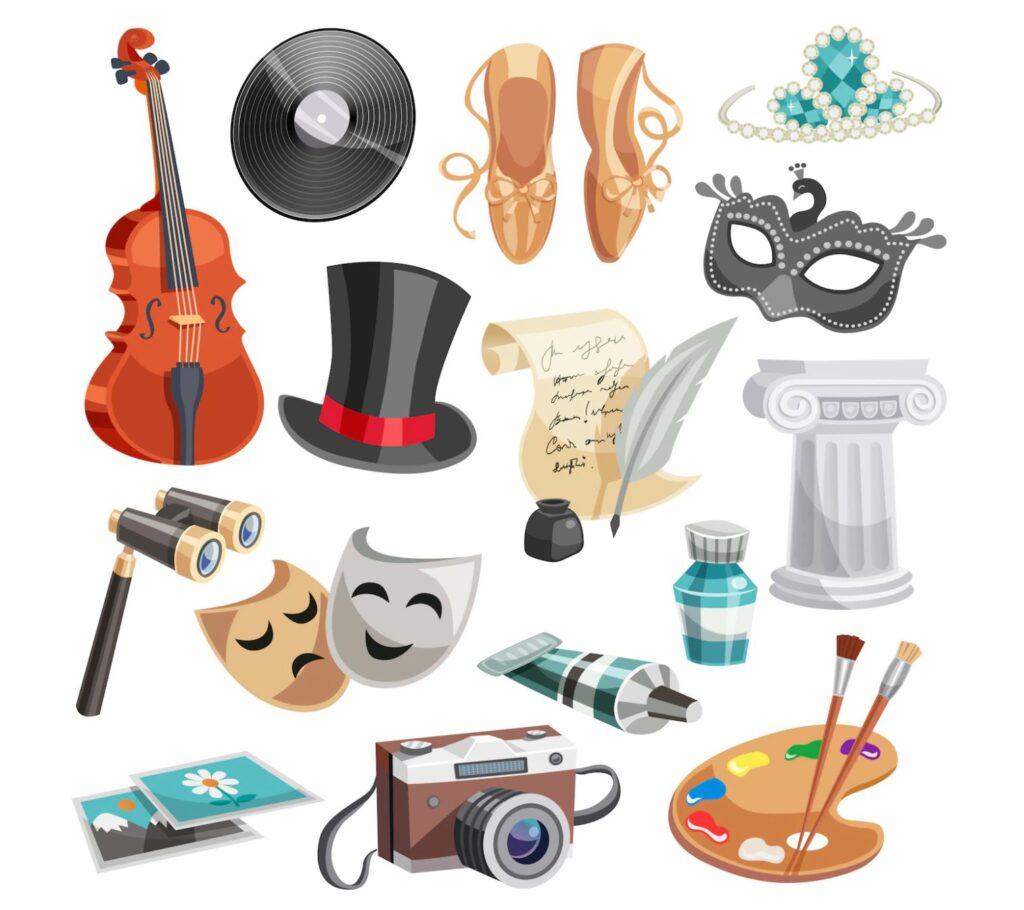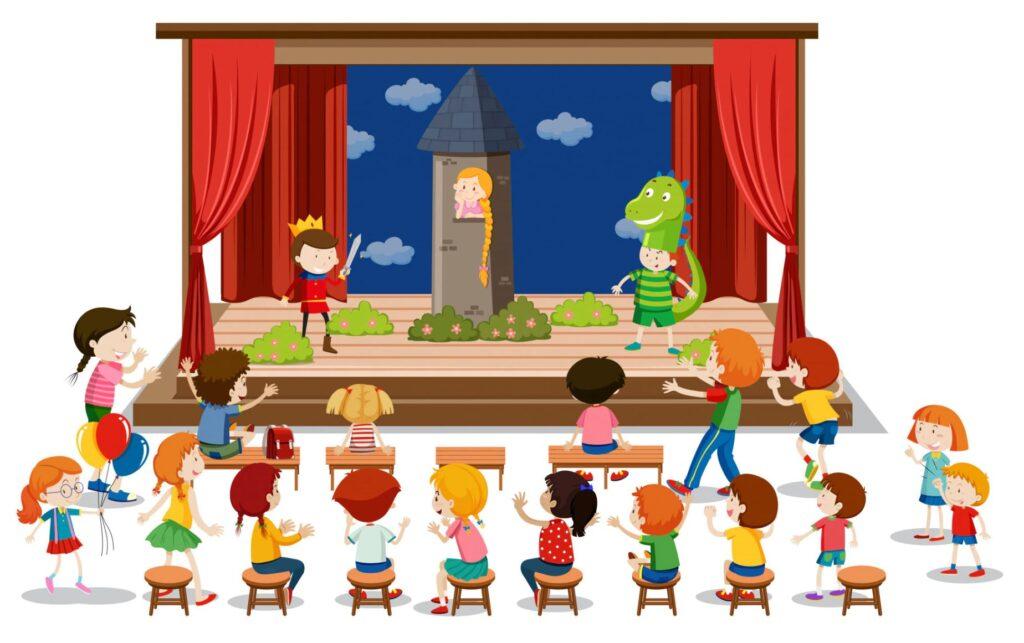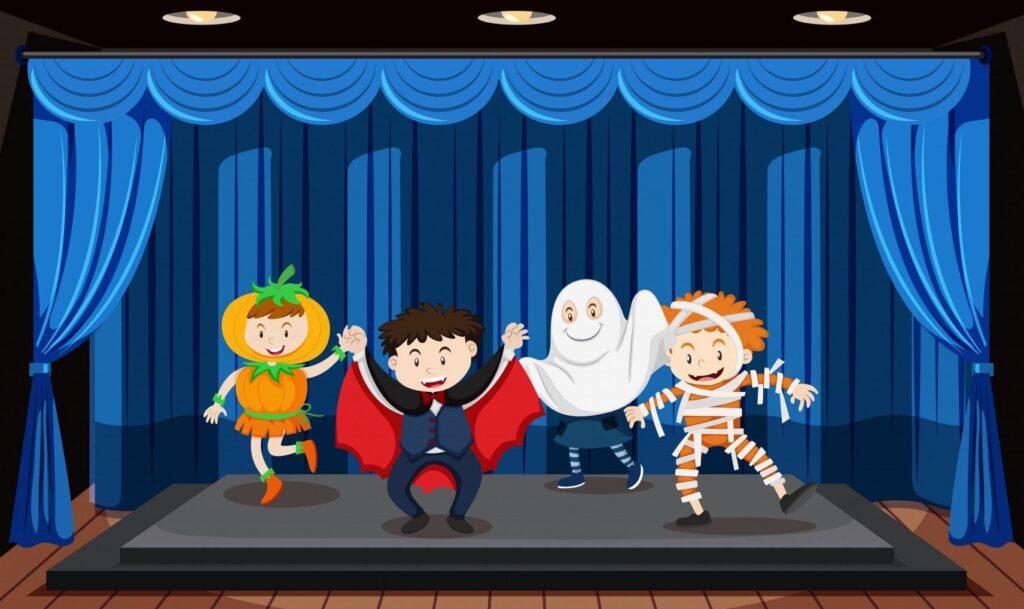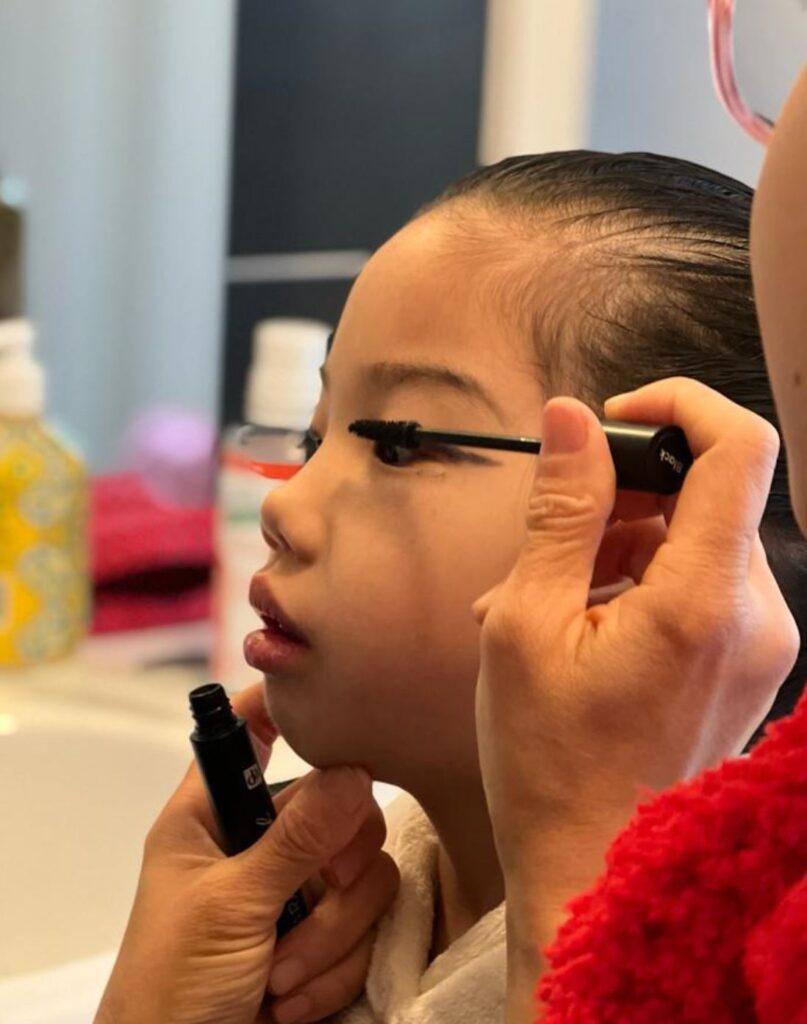A theatre is an art form that has been around for thousands of years. People of all ages, races, genders, and abilities can participate in the process of creating theatre. It allows you to be yourself or whoever you want to be. You can suspend your disbelief and live in a magical world. Across the world, children are offered theatre or drama classes as extra-curricular options from a young age. Some children get to experience as part of their schooling, but others source it as an external hobby. The chance to perform and develop drama is an experience you will never forget. Kids can gain many benefits from attending theatre lessons, such as creativity, communication. Meanwhile, there are lots of challenges of attending theatre lessons for kids. We will go through the benefits and challenges to help you and your kids when learning the theatre lessons.
Related Reading:
- 8 Best Positive and Gentle Parenting Books for Toddlers’ Parents
- 3 Criteria to Choose Extracurricular Activities For Young Schoolers
- 10 Best Extracurricular Activities For Young Schoolers
- 12 Things can Help Raise Kids with Diversity and Inclusion in Mind
- 8 Type of Intelligence – Every Kid is Gifted
- How to Stop Kids from Chewing Their Shirt

Table of Contents
Benefits of Theatre Lessons for Kids
1. Theatre Lessons Help Kids Build Respect and Discipline
When creating a show, kids need to listen to the director, take instructions, share ideas with peers, wait for their cue and appropriately respond to others. When they are acting, they can also appreciate the respect from the audience by quiet listening. If kids are aware and practice taking turns from a young age, they can benefit from this behaviors in other walks of life, such as school, the workplace, and different social situations.

2. Theatre Lessons Increase Kids Language and Communication Skills
Reading is an important life skill, and developing it should not be exclusive to the classroom. Reading needs to be fun, and theatre definitely has the fun elements. All children participating in theatre lessons get the chance to practice their reading skills, from the whole scripts to their own parts.
Participating in drama activities also helps kids expand their vocabulary. They are learning new words, language, and topics by taking on different roles, learning poems and song lyrics, and meeting authors, playwrights, and themes they may not have encountered before. Drama is a fun way for your child to practice reading aloud, and it will improve their ability to read with expression and fluency, as well as increase their understanding of book topics and empathy for the characters within them. Moreover, they are also simulate the character, imaging how he or she should talk in the story. That is much more fun than reading a book to your teacher. Children will work with scripts or with statements to produce theatre.
My daughter’s reading skills improved noticeably after she began her theatre classes. When she read aloud, she used far more expression, changing tones for different characters and situations. She had previously read in the typical monotone manner of many young children. Each character now had their own voice, and she had learned about vocal tones, conveying emotion in her voice, and other things.

3. Theatre Lessons Help Kids Be Creative
Creativity can be nurtured, either from drawing or performance. Theatre lesson allows kids to immerse themselves in a different role. This broadens their horizons while also giving them the opportunity to try new things without fear of failure. While performing, they need to imaging there is a running animal, or flying bird, or some scary things in the box, and brings audience to the world. Moreover, there are so many practical issues to overcome when developing theatre. They also learn to come up with solutions.

4. They can Develop Other Skills Besides Performing in Theatre Lesson
There are so many roles that children can take on that do not require them to be in the limelight, such as directors, choreographers, musicians, stage managers, lighting directors, sound technicians, set builders, and many more people. All these roles are open for young people to start learning. Even being able to develop basic knowledge at the age of 5 is a possibility. If a child wants to learn something and develop a new skill, they should be encouraged and supported to make it happen.

5. Theatre Encourages Teamwork and Collaboration
Nothing brings a group of people together faster than creating a piece of theater together. This is due to the fact that drama is enjoyable, and we bond through laughter and enjoyment. Drama requires children to express themselves openly throughout the activities, which encourages members to become friends by supporting one another.

6. Making Friends
Drama is an excellent way for children to make friends. For theatre to be successful, you must trust those around you, so you will inevitably make friends in your theatre class. Theatre groups are like one big, mismatched family who all look out for one another and offer endless support. Children of all ages mix, and the older children look out for, the younger ones in their’ pack.’ The friends you make in drama lessons have the same interests as you. You share a love for performing and the theatre; as you grow older, you get your favorite shows, favorite characters, and a mind full of memories and hilarious stories.

7. Develop Emotional Intelligence
Characters’ reactions to rage, jealousy, grief, fear, and love are explored in theatre. Children who study performing arts are also studying human behavior and learning about common human emotions. Children observe the various situations that can lead to human reactions. It aids in the development of emotional intelligence. A brainstorming exercise to get children thinking about how a character feels in a scene could be included in theatre training. Bullying, sibling rivalry, school problems, and other life situations are featured in dramatic scenes, which help children express themselves through theater training. Role play is a natural part of children’s play that helps them understand and control their emotions in a positive way.
Related Reading:
- What Should Parents Do? A Story about Kids Lie and Sibling Fight
- 8 Youngest Child Traits: Does Birth Order Matter?
- 11 Tips for a Meaningful Summer Holiday for Both Kids and Teens
- 10 Ways to Be an Upstanders in Bullying
- Prevent Kids from Bullying: A Complete Guide for Young Schoolers’ Parents (5 to 8 years)
- Positive Discipline – How to Get Your Toddler to Listen Without Yelling
- 10 Fun Sibling Games To Heal Sibling Rivalry
Challenges of Theatre Lessons for Kids
After so many positive benefits, what are the challenges for theatre lessons? When kids are still young, one of the great challenges are the parents support, the time spend, the cost behind, and also how to keep kids motivated. Let’s look into details.
8. How Much Time Theatre Lessons Can Spend?
Rehearsals can be time-consuming, especially if a performance is imminent. Many theatre groups try to keep their youngest students for the shortest time possible however the frequency of rehearsals will probably increase, and the demands on your child will also grow. Many children can cope with the change in pace; however, a small number struggle, and it is worth noting that your child may need extra support to cope with the demand on top of a full-time school schedule, a social life, and any other hobbies they may have.
The amount of time you and your kids will spend on the stage and preparing for the stage is a lot. They need to be dedicated, as missing rehearsals cannot happen as the rest of the team rely on you to be there, even you only have several scenes and not the main actor. If your child is dedicated, you need to be too, especially with all the rehearsal make up and car runs. Take my daughter as example, the regular training time is 4 hrs per week excluding travel and extra rehearsal time. It is a great commitment from parents.

9. The Theatre Lessons Can Be Expensive
Theatre lessons and performances are expensive hobbies. Once you have paid the class fees, there will most likely be uniforms and costumes you need to pay for and trips to see performances by other groups or professional productions. All the expenses quickly add up. Kids also need to watch other shows, the theatre tickets are not cheap.

10. Kids Can Face Rejections in the Theatre Lessons
Rejection is a tricky thing to deal with kids. You will receive auditions as part of a drama class or theatre group. Several children will be auditioning to play the same role, and unfortunately, only one person can have this part, resulting in the others feeling a sense of rejection and loss. Although this is something they will encounter several times in life, it cannot be easy to process at a young age. You need to ensure that your child is prepared for knockbacks, and so are you. You will both develop the skills to manage as time progresses; however that first time can be rough.
Some people feel their children will be famous if they attend drama lessons. However, very few are going to be in this position, so please do not feel this is a certainty, no matter how talented you think your child might be.
How to Start Theatre to Kids
If you’re interested in enrolling your kids in theatre lessons, here are some tips to start:
1. Start with Musicals
Musicals are the easiest theatre productions for kids to understand and follow. It is an excellent place to begin if your kids are interested in music or singing.
2. Watch Family-Friendly Shows
Bring kids to age appropriate shows to feel the magic. If they can follow actively and very much exciting about it, it means they are ready for a trial lesson.
3. Trial with Role Play
Role play can be great ways to introduce your child to the theatre world. Kids can have role play with you or their play dates, which also allowing them to build friendships with other kids who share the same interests.
Final Thoughts from Pragmatic Lifestyle
Theatre is a magical process that encourages personalities to develop and friendships to form. The buzz you get when you step out on the stage, and the audience shows their overwhelming love for your performance is like no other feeling. The first time you step on the stage as a child, the energy that rushes through your veins feels like it will burst out of you. You cannot figure out if you are nervous or excited, but when the performance is over, you are proud of everything you have achieved and want to do it again.
Imagine the pride you will feel when you see your child take part in performance, whether as an actor, a director, a stage manager, or part of the technical crew. The skills your child will have developed and demonstrated will be a thing of amazement, and no matter the size of the role they play in producing the performance, you will be beaming with emotion.
About Me
Hi, there. I am Lin. Together with my husband and two kids, we live in the beautiful Netherlands in Europe. I am dedicated to self-development, creating quality time for the whole family, and fully supporting kids with their potentials and possibilities with all I have learned from engineering, MBA, and 10+ years of working experience in the energy sector.



2 Comments
Comments are closed.